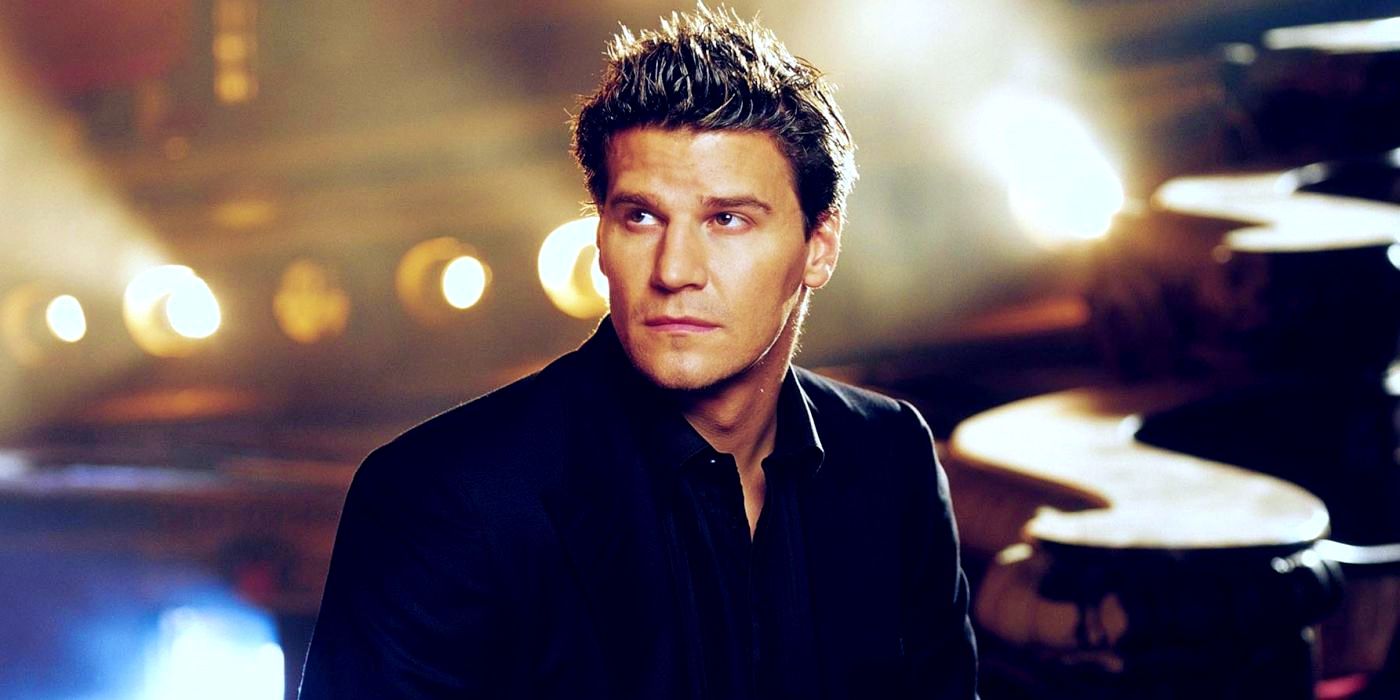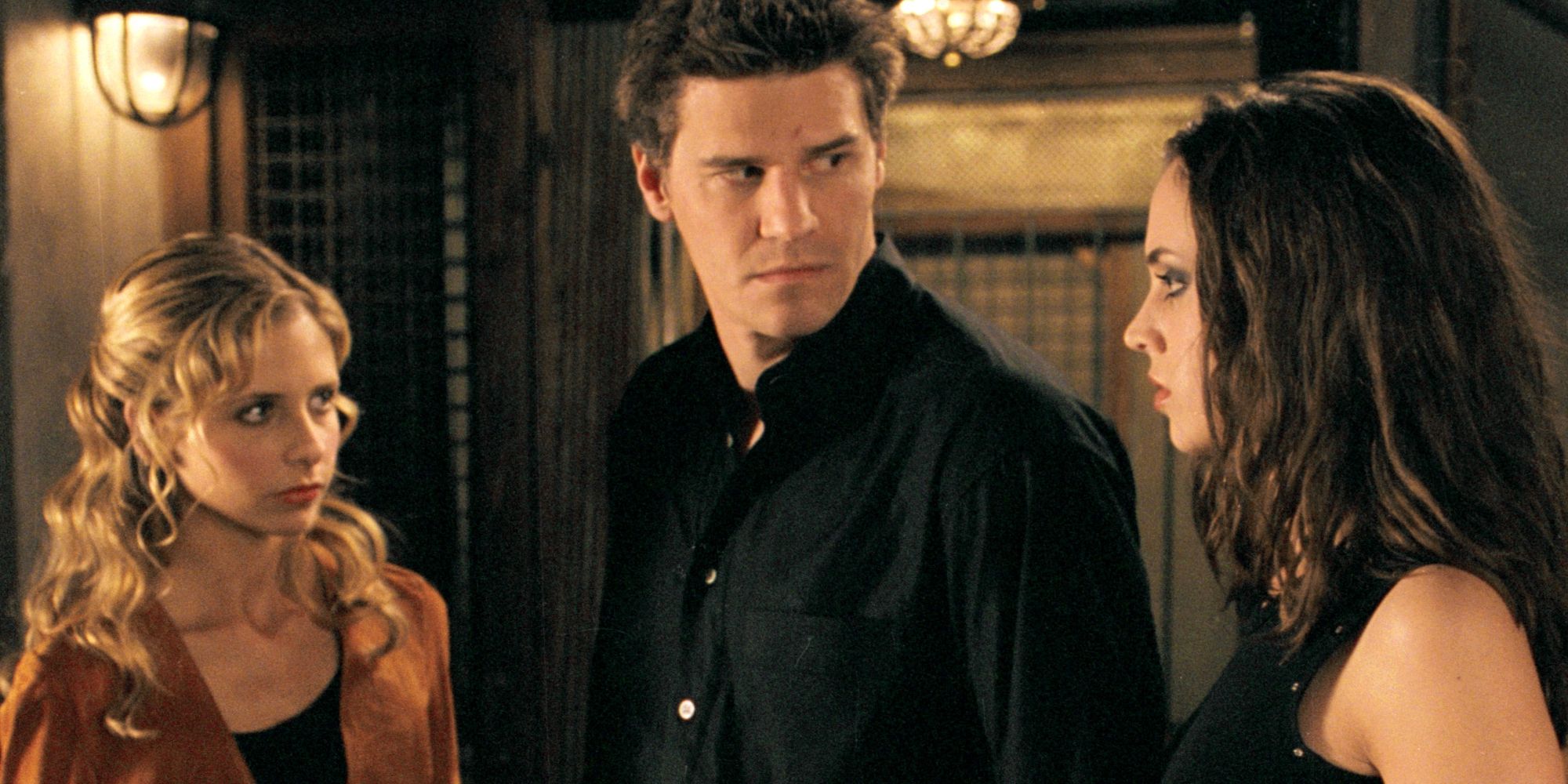While both of Joss Whedon's shows were immensely popular in their own right, and remain beloved to fans decades after their initial release, Angel managed to do one thing better than Buffy the Vampire Slayer.
Buffy the Vampire Slayer initially released on The WB in 1997 and ran for five seasons before switching to UPN for seasons 6 and 7; the series finale aired in 2003. Angel was developed as a spin-off series by Joss Whedon after he was convinced that David Boreanaz—who portrayed Buffy's boyfriend, Angel—could carry an entire series by himself. Whedon and David Greenwalt released Angel on The WB in 1999 after writing Angel's character off of Buffy in season 3. While the character set up shop in Los Angeles, many other familiar faces from the Buffyverse came to have either short story arcs or transitioned into main characters on the spin-off. Many felt that a few of these characters were better developed on Angel than they were during their time on Buffy.
Angel was abruptly canceled on its way into season 5, and aired its series finale in 2004. For a moment, the two shows closely overlapped, and even featured numerous crossover episodes and plots that expanded the greater universe. Both series continued in comic book form, continuing the stories that were left unsaid and developing more finite fates for beloved characters. Despite coming from the same minds and featuring many of the same characters, Angel managed to gain a slight edge over Buffy the Vampire Slayer in a way that speaks directly to what fuels character-driven shows.
The ONE Thing Angel Did Better Than Buffy the Vampire Slayer
In many ways, Buffy the Vampire Slayer was a coming-of-age story centralized around Buffy Summers (Sarah Michelle Gellar). While her friends—the Scooby Gang—were prominently featured, well-developed, and had story arcs of their own, the show was still very much about Buffy's trajectory. Season 1 began with the Slayer learning how to adapt to high school in a new location, make new friends, and continually thwart the end of the world. Angel may have been the centerpiece of Angel, but he wasn't the show's star in the same vein. Instead, the focus of the spin-off was more thematic and focused around Angel's continual quest: redemption.
Through Angel's journey, other characters were allowed to flourish and find themselves, their true purpose, and redemption of their own. He served as an example to others, rather than just a leader, which left room for other characters to shine for more than an episode or two. One of the best examples of this is through his relationship with and mentorship of Faith (Eliza Dushku), who was introduced as the "rogue" Slayer on Buffy, but came into her own on Angel. Faith was more of a prop to showcase the opposite side of everything Buffy represented on Buffy the Vampire Slayer. Under the ensouled vampire's mentorship, she overcame her personal demons and began to walk a similar path to Angel's.
Other characters were able to find themselves under Angel's tutelage as well. Wesley (Alexis Denisof) was a staunch follower of the Watcher's code, prim and stereotypically English; he re-emerged in Angel season 1 as a "rogue demon hunter", and experienced tremendous growth throughout the series. Alongside Angel and his group, he was able to find his true potential and a better understanding of heroism and sacrifice. This same principle applied to characters like Cordelia (Charisma Carpenter)—formerly Sunnydale High's resident mean girl—and Spike (James Marsters), who always struggled with his purpose and identity.
It's not as simple as saying these characters were given better storylines on Angel; there's a more specific theme, which speaks to the type of self-discovery which can be nurtured in an environment where someone already knows who they are. Buffy came to know herself by season 7, but even she professed to Angel in the penultimate episode of the series that she was "cookie dough"; she wasn't done discovering who she was meant to be. While Buffy was a strong and capable leader, it was the larger themes of Angel which set it apart as a mature and often more heavy-hitting show.


